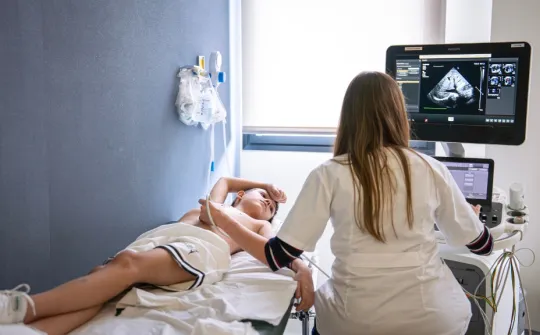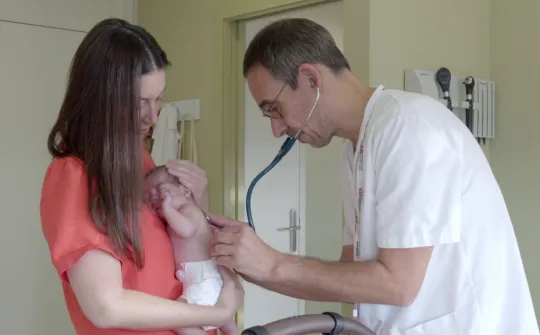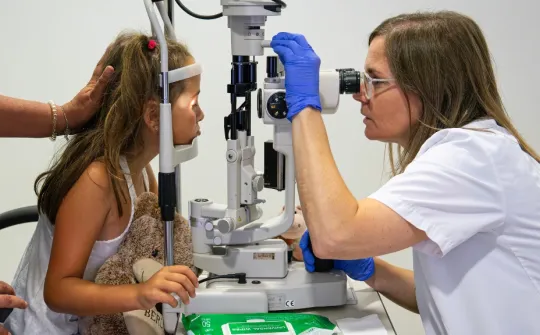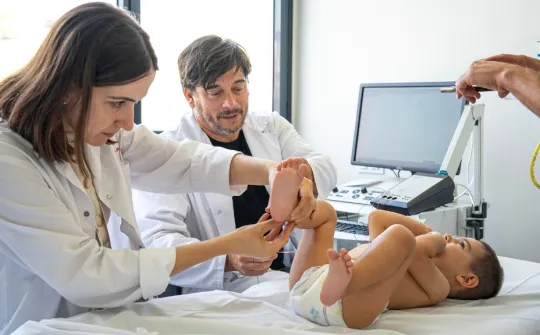Sant Joan de Déu-Barcelona Children’s Hospital and Hospital Clínic de Barcelona save the life of a fetus with obstructed larynx, operating on it in its mother’s womb
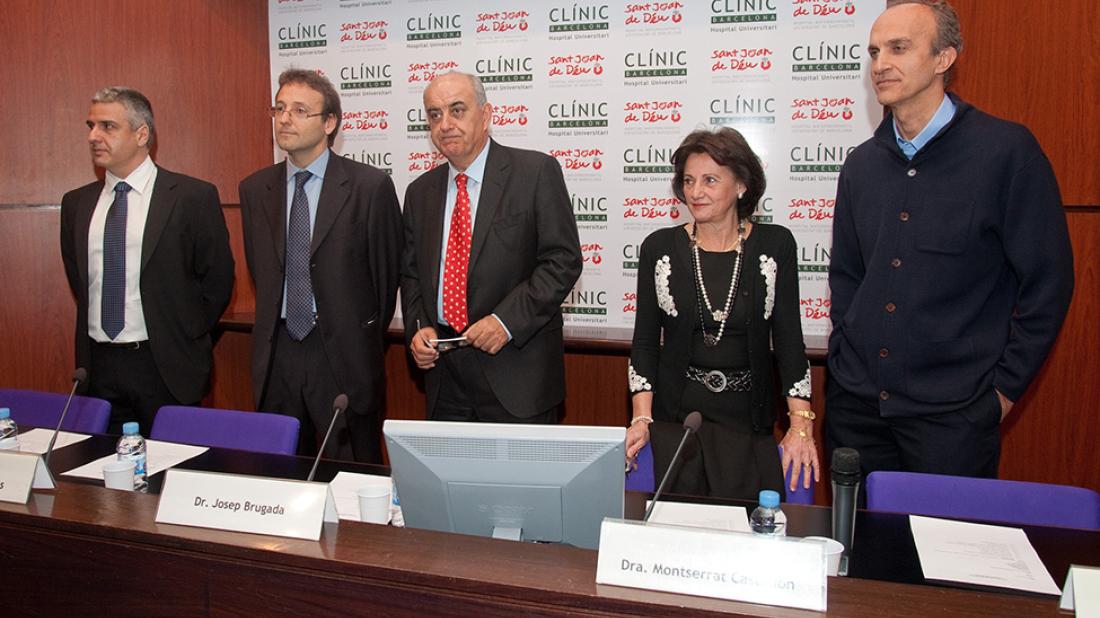
A multidisciplinary team from Hospital Clínic de Barcelona and Sant Joan de Déu-Barcelona Children’s Hospital has operated on a fetus in its mother’s womb for a life-threatening congenital high airway obstruction (CHAOS).
A multidisciplinary team from Hospital Clínic de Barcelona and Sant Joan de Déu-Barcelona Children’s Hospital has operated on a fetus in its mother’s womb for a life-threatening congenital high airway obstruction (CHAOS). This is a very rare malformation that leads in most cases to the death of the fetus or baby.
The patient was referred from Cartagena Hospital, where the pregnancy was being followed. In an ultrasound performed in week 21 of gestation, the doctors there observed that the fetus’s lungs were highly distended, placing its life at risk from impending heart failure. The case was referred to Barcelona, where the diagnosis was confirmed: the fetus’s larynx was completely obstructed. Congenital high airway obstruction syndrome is a rare but well known malformation. A fetus does not need to breathe but the obstruction prevents its lungs from expelling secretions through the trachea. This causes excessive growth of the lungs, which compress the heart. And this situation finally leads to its failure.
In the few surviving fetuses, the lung tissue is seriously damaged and does not function normally. All the cases reported in medical literature have either ended in death or, in the few survivors, with severe sequels. The case of the Cartagena patient met the criteria set by the team of Barcelona physicians for the performance of the surgery they had designed for CHAOS.
The operation was carried out at the Maternal-Fetal Medicine Service of Hospital Clínic de Barcelona by a team of specialists in fetal medicine and therapy from the Hospital Clínic de Barcelona and paediatric surgeons from Sant Joan de Déu-Barcelona Children’s Hospital.
The procedure involved an operation on the fetus in its mother’s womb in order to clear the obstruction in its trachea and prevent its death. The specialists anaesthetised the fetus, placing it in a suitable position, and then introduced a foetoscope (a special endoscope for fetal surgery measuring only 3mm in diameter) into the uterus, then into the fetus’s mouth and from there to its larynx, where the vocal cords are found. Using special fetal surgery instruments with diameters of under one millimetre, the obstructing membrane was perforated and removed.
Eight years ago Hospital Clínic de Barcelona and Sant Joan de Déu-Barcelona Children’s Hospital set up the Fetal Surgery Programme, now one of the largest programmes of its type worldwide. It has applied fetal therapy techniques in over 1,200 pregnancies to date and at present it receives over 2,500 consultations each year for assessment and treatment of fetal disorders. Between 120 and 150 of these cases require surgery. The programme treats patients from across the Iberian Peninsula and from abroad, especially including Europe, South America and the Middle East.
The two hospitals have now decided to take another step forward and to create a single Maternal-Fetal and Neonatal Medicine Centre to be located at Hospital Clínic de Barcelona and Sant Joan de Déu-Barcelona Children’s Hospital. Under a single direction, the Centre will accommodate all the clinical, teaching and research & innovation activity in this field. This will allow it to consolidate the level of excellence already achieved and to offer one of the world’s largest facilities devoted specifically to fetal medicine and treatment, highlighting the city of Barcelona’s leading international position in this field.
